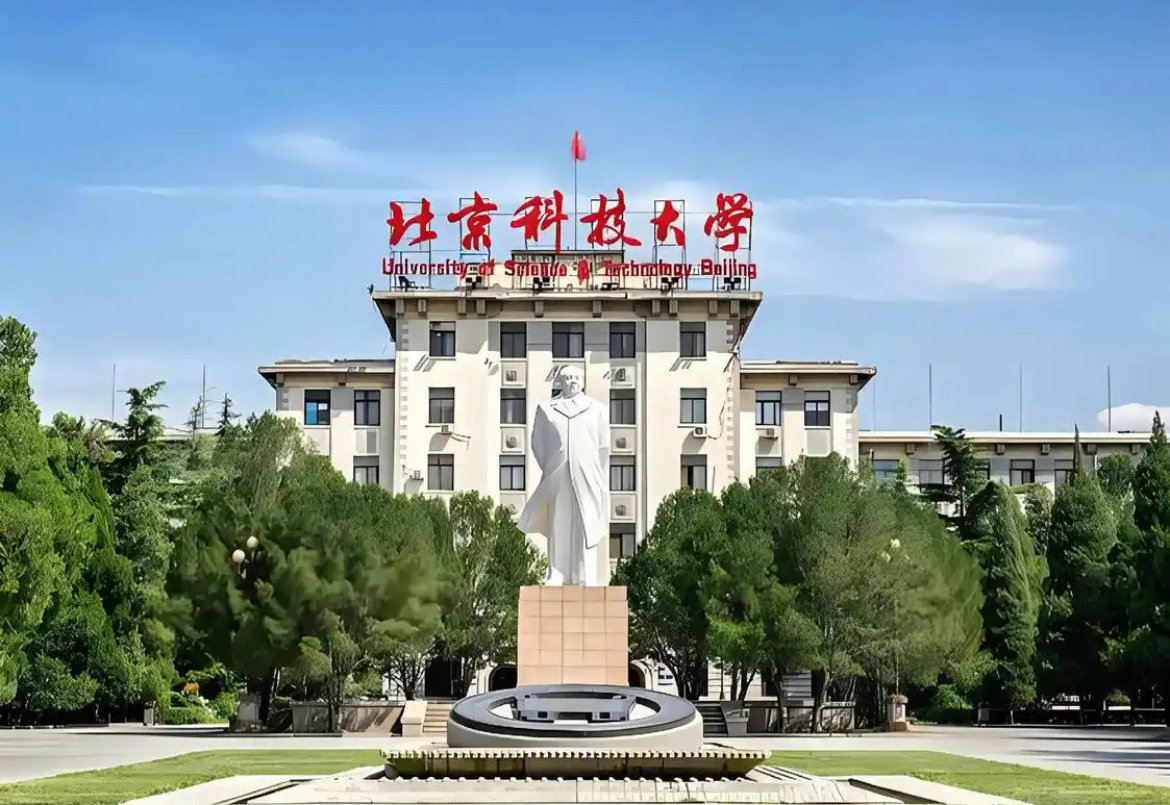Global Trends in Green Financial Innovation and Technology
Date:
November 20th, 2025 (UTC+8)
Organizer:
University of Science and Technology Beijing
Symposium Chair:
Personal Bio:
Sun Huaping, born in 1979 in Jining, Shandong Province, received his Ph.D. in Economics and is now a Professor at the Institute of Industrial Economics, School of Finance and Economics, Jiangsu University. His research focuses on industrial low-carbon economics, global value-chain innovation, energy economics, and environmental governance. He has authored more than 80 peer-reviewed articles in leading SCI/SSCI journals, including Energy, Energy Policy, and Journal of Cleaner Production.
Call for Papers
Background:
In response to growing environmental and climate concerns, the integration of green principles into financial innovation and technology has become a global priority. As countries and institutions work toward sustainability goals, green finance has emerged as a key area for promoting low-carbon development, responsible investment, and climate-resilient infrastructure. At the same time, technological advances such as blockchain, big data, and AI are accelerating the growth and reach of green financial solutions. From green bonds to ESG-based investment platforms, financial technologies are playing a pivotal role in redirecting capital flows toward sustainable outcomes. This symposium aims to explore the evolving landscape of green financial innovation, connecting scholars and professionals interested in shaping a more sustainable financial future.
Goal/Rationale:
Climate change and environmental degradation pose systemic risks to the global economy, requiring an urgent shift toward sustainable finance. While green financial instruments are not new, recent technological developments are enhancing their effectiveness, scalability, and transparency. However, challenges remain in areas such as data standardization, regulatory harmonization, and impact measurement. This symposium aims to explore how financial innovation and emerging technologies can accelerate the transition to green finance on a global scale. Topics such as green digital finance, climate risk modeling, ESG data analytics, and the role of fintech in supporting net-zero goals will be discussed. The rationale is to provide a platform for interdisciplinary dialogue that addresses both the promises and limitations of green financial technologies. By fostering academic exchange and real-world insights, the symposium will contribute to the development of innovative, effective, and inclusive green financial systems.
Scope and Information for participants:
This symposium invites contributions focused on the intersection of sustainability, finance, and technology. Topics of interest include, but are not limited to:
- Green fintech business models and investment strategies
- ESG data, scoring systems, and responsible AI
- Blockchain applications for carbon trading and green bonds
- Central bank digital currencies (CBDCs) and climate policy
- Sustainable crowdfunding and digital microfinance
- Regulatory approaches to green digital finance
- Climate risk assessment through AI and big data
- The role of financial innovation in achieving the UN SDGs
Topics
The main topics of this symposium are listed below.
Finance
- Business Intelligence
- Business Information Systems
- Corporate Finance and Governance
- Digital Financial Intermediation
- Finance & Investment
- Financial Risks and Capital Flows
- Global Business
- International Finance
- Prices, Business Fluctuations, and Cycles
- Real Estate Finance
- Finance Residential
- Commercial Real Estate
- Housing Market
- Real Estate Policy Reform
- Green Finance
E-Commerce
- Cloud Accounting
- E-advertising
- Digital Currencies
- Digital Marketing
- Innovation, Growth, and Social Prosperity
- Internet of Things
- Social Media Marketing
- Web Design in E-commerce
- Online Consumer Behavior
- Online Consumer Data
- Openness, Regional Integration, and Economic Growth
- Technological Change, Research, and Development
Management
- Advertising
- Business Performance Management
- Decision Sciences
- Development Planning and Policy
- Entrepreneurship
- Human Resource
- Information Systems
- Information Technology Management
- Labor Relations & Human Resource Management
- Management Information Systems
- Operations Research
- Organizational Behavior & Theory
- Production/Operations Management
- Public Administration and Small Business Entrepreneurship
- Public Relations
- Public Responsibility and Ethics
- Strategic Management
- Systems Thinking
- Time Management
- Total Quality Management
- Tourism Management
Meanwhile, submissions aligned with the overall conference theme are also welcome.
Business
- Business Analysis
- Techniques, Methodologies, and Models
- Enterprise and Company Analysis
- Requirements Planning and Management
- Requirements Analysis and Documentation
- Strategic Analysis and Design
- Innovating
- Vendor and Tools Track
- Data Modeling
- Business Process Modeling
- Soft Skills and Competencies
- Architectural Frameworks
- Business Rules
- Object-Oriented Analysis
- Structured Analysis
Economics
- Economic Development
- Comparative Economic Systems
- Consumer Behavior
- Economic Systems
- Financial Economics
- Household Behavior and Family Economics
- Industrial and Manufacturing
- International Economics
- Labor Economics
- Law and Economics
- Market Structure and Pricing
- Marketing Research and Strategy
- Public Choice
- Productivity and Economic Growth
- Regulatory Economics
- Travel/Transportation/Tourism
- Welfare Economics
- Sustainable Development
Submission
All submitted papers should report original and unpublished work, experimental or theoretical, and are not under consideration for publications elsewhere. All papers should be no less than 4 pages in length and must strictly follow the format of the symposium template. All papers are subject to reviews and edits. Prospective authors are kindly invited to submit full text papers that includes title, abstract, introduction, tables/figures and references. Other styles of papers are not accepted. Please submit your papers in both .doc/.docx AND .pdf formats as attachments via email to sympo_beijing@icftba.org by the given deadline. It is unnecessary to submit an abstract in advance.
Publication
Accepted papers of the symposium will be published in Advances in Economics, Management and Political Sciences (Print ISSN 2754-1169), and will be submitted to Conference Proceedings Citation Index (CPCI), Crossref, CNKI, Portico, Google Scholar and other databases for indexing. The situation may be affected by factors among databases like processing time, workflow, policy, etc.
The papers will be exported to production and publication on a regular basis. Early-registered papers are expected to be published online earlier.
This symposium is organized by ICFTBA 2025 and it will independently proceed the submission and publication process.
Ways to Participate
Attenance Onsite:
The symposium welcomes participants to attend on-site and share the innovative experiences and researches with the group. Therefore, we provide some general information about the visa application. If you want to attend the symposium on-site, please email the symposium committee: sympo_beijing@icftba.org.
Highlights
The symposium, themed "Global Trends in Green Financial Innovation and Technology," focused on the intersection of ESG, green transition, climate change, and financial innovation, showcasing multidimensional and interdisciplinary research progress. Several scholars explored the impact mechanisms of key variables—such as artificial intelligence, ESG ratings, climatic factors, bankruptcy risk, and trade policy uncertainty—on the green transition, corporate behavior, and carbon emissions. The research covered not only the Chinese context but also included empirical analyses from emerging economies and countries like Pakistan, reflecting a global perspective and practical relevance.
The presentations highlighted data-driven research methods and policy-oriented problem awareness, offering valuable insights, particularly in promoting the transition of high-carbon enterprises, enhancing supply chain resilience, and fostering green technology innovation. These outcomes provide important references for understanding the implementation pathways of green finance, constructing corporate sustainability strategies, and designing effective policies. They also underscore the active role of academia in addressing climate change and driving high-quality development.


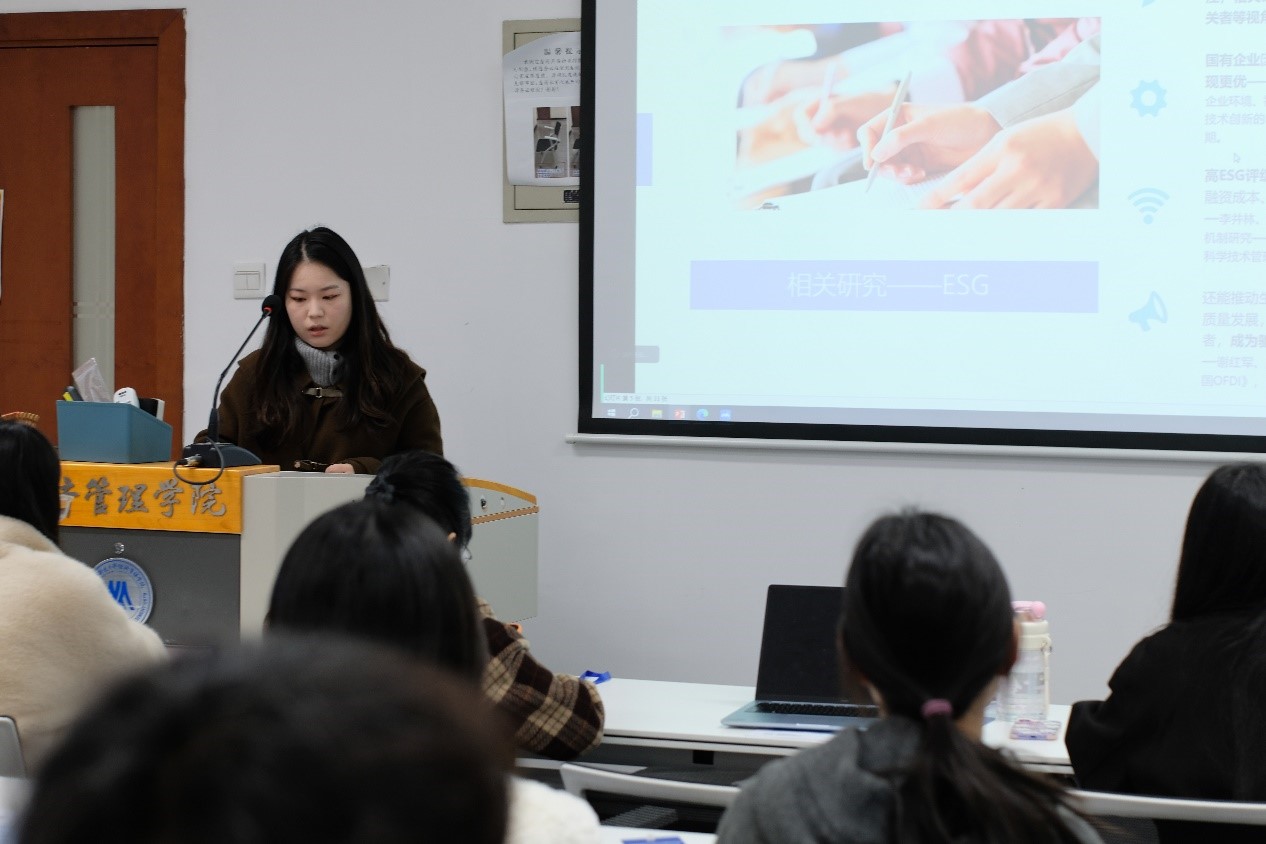
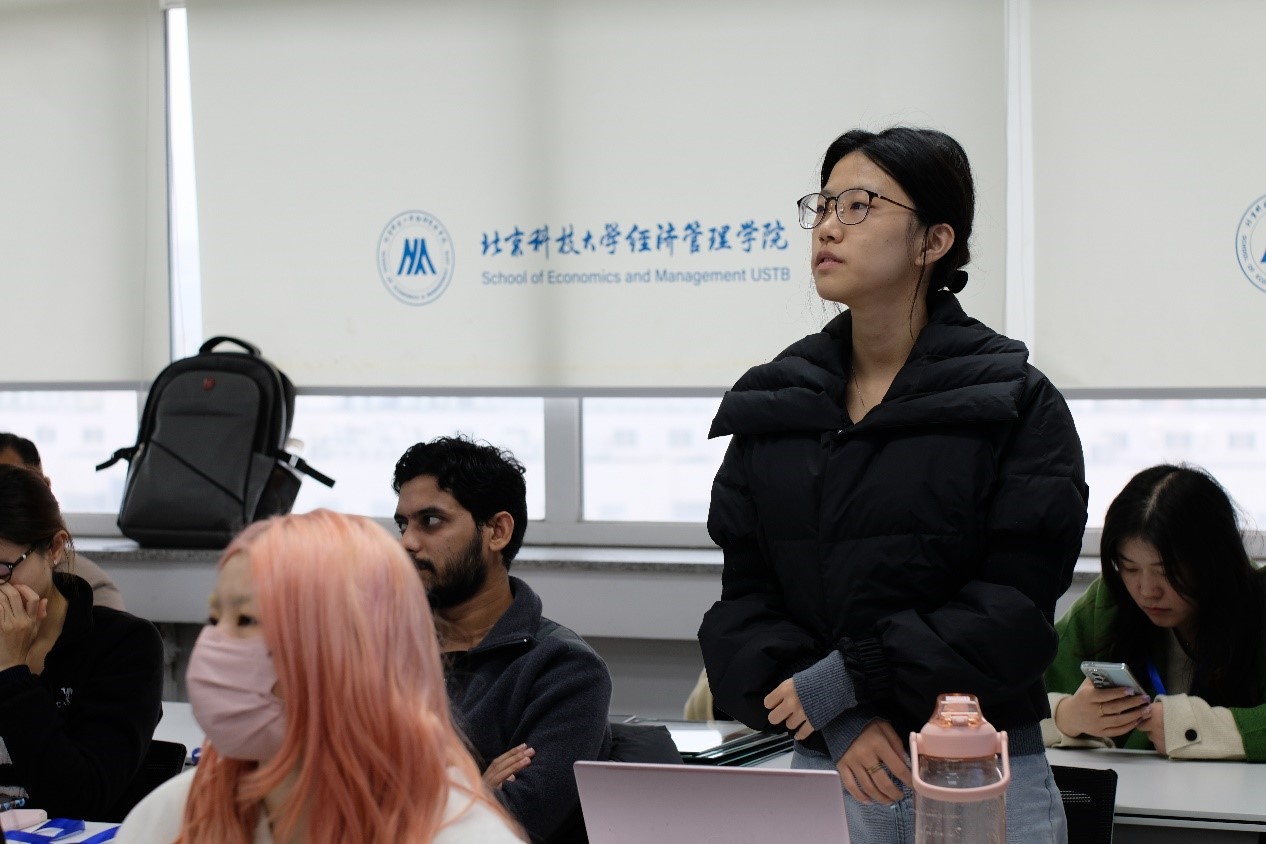


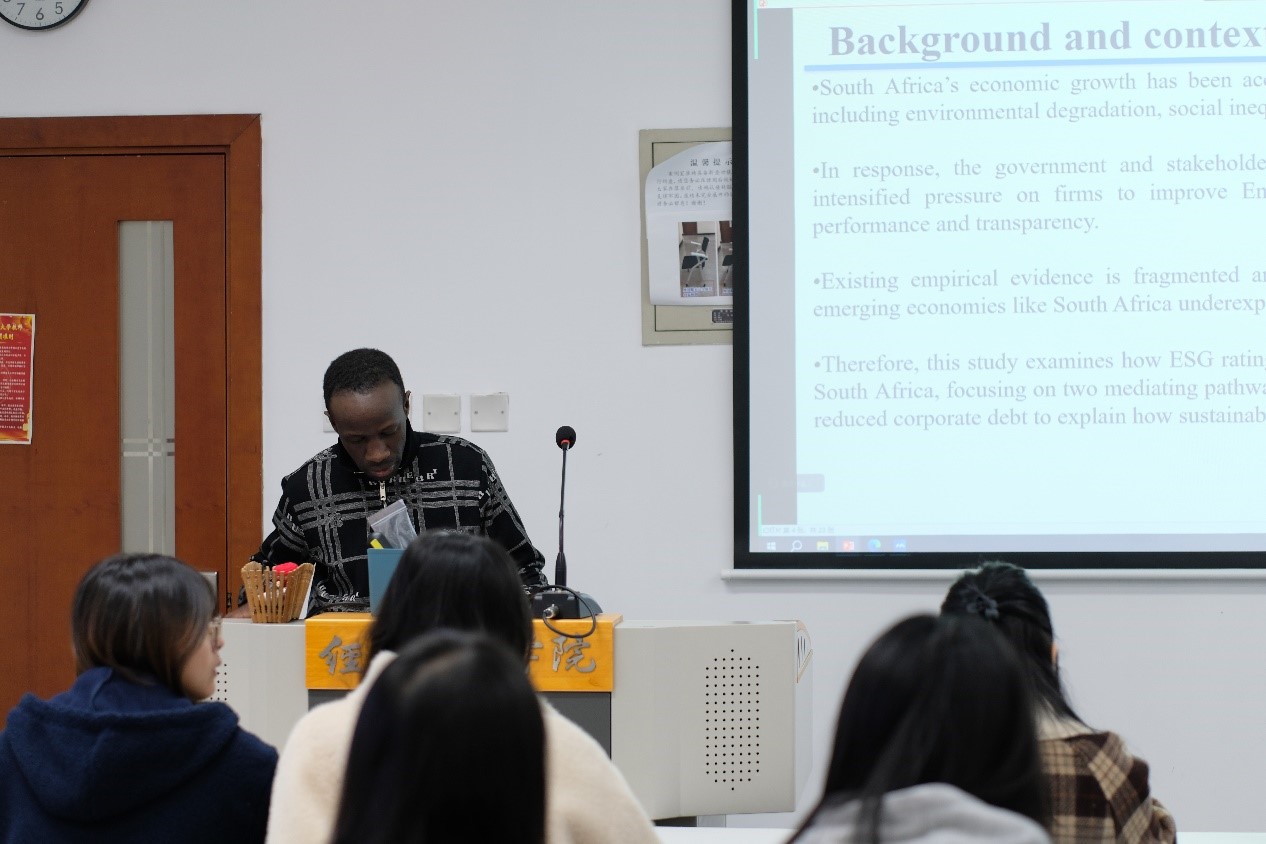


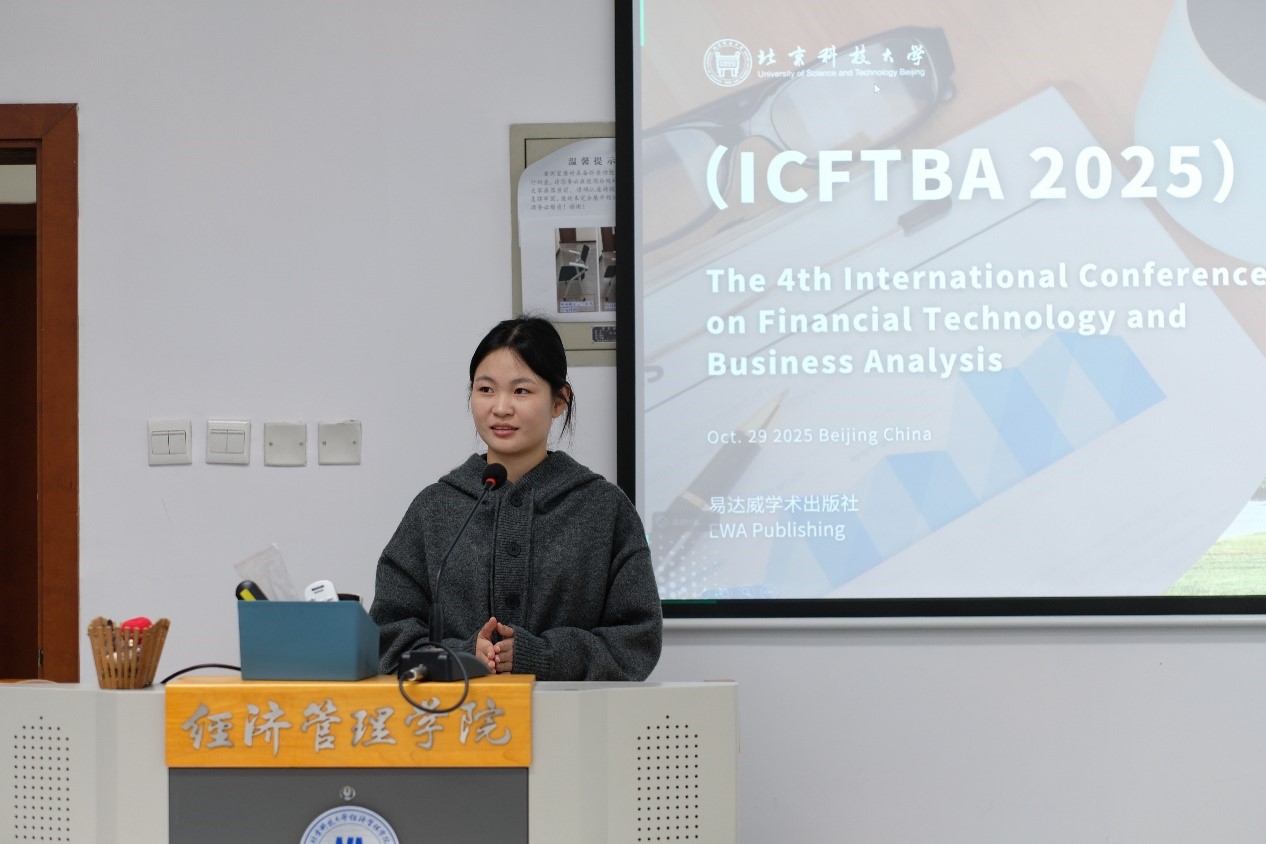


VISA
Visa for ChinaIn order to ensure the information is correct and up to date, there may be changes which we are not aware of. And different countries have different rules for the visa application. It is always a good idea to check the latest regulations in your country. This page just gives some general information of the visa application.
China Visa Information
-
Check which visa you need to get
-
China Visa Registration Process
-
How Long Does It Take to Get a Visa to China
-
How Do You Get a Visa for China?
The majority of foreign citizens are required to obtain one of the China visas in order to visit the country, as there are only a few nationalities who are granted visa free entry for China for short stays. At the moment, travelers from countries who are not visa-exempt for China are obliged to apply for a visa in person from a Chinese embassy or consulate, with only a few exceptions, including for tour groups and airline crew from a few select countries. This is expected to change in the near future for select eligible nationalities when China introduces an electronic application form for visas. This will make it possible to apply for certain visa types for China exclusively online, eliminating the need to travel to an embassy or consulate in person.
As the launch date for the Chinese electronic is yet to be finalized, however, non visa-exempt citizens are still currently required to apply for one of the following visa types for China from an embassy or consulate.
Foreign nationals who wish to travel to China will need to follow a registration process to obtain their visa. The China Visa application form should be signed and every question must be answered. Applicants may select "none" if the question does not apply to their individual circumstances. Applications for the Chinese visa must be completed in block capital letters and handwritten changes will not be accepted. The signature on the China visa application must match the signature on the applicant's passport. People's Republic of China diplomatic missions require that each visa application is completed following strict guidelines. Supporting documents must be accurately and carefully prepared.
Generally speaking, if the applicant meets all the requirements, has all the necessary documents and holds a passport with at least six months validity and two blank pages it should take about four working days to get a Chinese visa. Some People's Republic of China Diplomatic Missions offer rush service, which speed up the processing time of a visa for China. Nonetheless, it is only available for cases of extreme urgency and depend on the approval of the Chinese Consular Office. Foreign nationals who wish to travel to Mainland China, whether it is for tourism, business, transit or other, are recommended to apply between two months to fifteen days before their departure. If the traveler applies with too much time in advance, they visa might expire before they can use it. When a visa for China is granted, the validity period of such visa begins from the moment it was approved.
The People's Republic of China has several types of visas in place. The visa a traveler needs depends on their citizenship, purpose of trip and the length of their stay. Currently, there are only some countries that are exempt from applying for a China visa to travel to Mainland China. However, the country does waive visas if the traveler meets specific requirements and is traveling to certain regions.
To apply for a Chinese visa, the traveler will need to complete an application form, attach a recently-taken color photo, submit the application and pay the respective fee. Tourist that are from non-visa exempt countries should apply for the Tourist (L) visa, issued to aliens who are traveling to Mainland China for tourism purposes only. Those who wish to carry out business in China will need to obtain the Business (M) China visa.
To successfully apply for a visa to China, the applicant will need to provide supporting documents and a valid passport. If applying for a Tourist (L) visa to China, the supporting documents refer to round-trip tickets, accommodation bookings, or an invitation letter from a travel agency in China. It is important to note that the China visa application requirements will vary depending on the type of visa the traveler is applying for.
